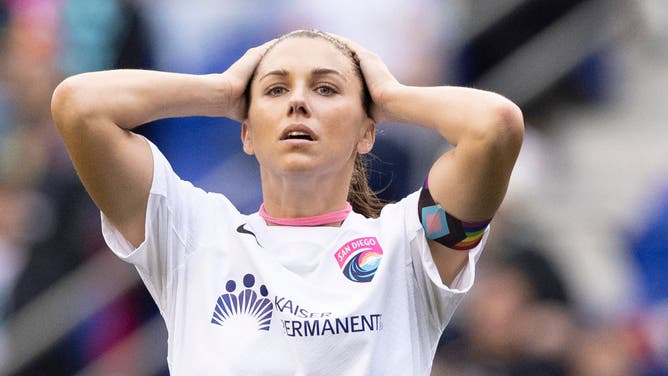FIFA To Feature Eight Different 'Unity' Armbands At Women's World Cup, But Not The LGBTQ Rainbow
The upcoming women's World Cup in Australia and New Zealand will feature eight different armbands that captains of each team can choose to wear during the tournament. The traditional rainbow armband known as a symbol for LGBTQ pride is not among the eight as FIFA opted out of the symbol entirely.
The 'OneLove' armband that was banned during last year's men's World Cup in Qatar will be featured for the women's tournament, but it doesn't feature the same color scheme seen in the pride rainbow, according to ESPN. The 'Unite for Inclusion' band is also similar to the pride rainbow, but not the same.
"The OneLove armband, with its red/black/green/pink/yellow/blue color scheme, is similar to but not the same as the rainbow that is known as a symbol of LGBTQIA+ pride"..."This 'Unite for Inclusion' option chosen is heart-shaped and multicolored but not quite the rainbow the Germany team wanted to use at the tournament, where a number of gay players will be among more than 700 selected on team rosters," ESPN reported.

FIFA has opted to exclude the traditional rainbow Pride armband from the upcoming women's world cup. (Photo by Ira L. Black - Corbis/Getty Images)
Among the armbands that will be featured throughout the tournament include 'Unite for Inclusion, 'Unite for Peace,' and 'Football is Joy, Peace, Love, Hope & Passion,' which is in partnership with the World Health Organization (WHO).
The exclusion of the traditional rainbow pride armband will certainly be a talking point among players from each country playing in the tournament, including the USWNT.
American stars Megan Rapinoe and Alex Morgan have recently created controversial headlines with their beliefs about transgender athletes, specifically transgender youth, needing to be involved in female sports.
“The inclusion of trans kids in sports is the inclusion of kids in sports,” Morgan, a mother to a daughter, told The Athletic in February. “Everyone should have the ability to play sport. The fact that it’s being taken into politics is really sad. And I think it’s at the cost of trans kids’ life.”